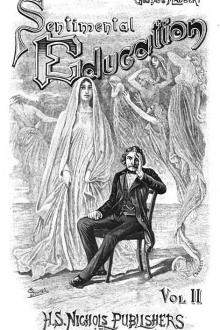
Yet she has the advantage for any reader of being violently real in her physical presence.

True, Emma is a wretched woman, and her character and culture are relentlessly dissected by the author. Emma’s adventures dominate the action one’s attention is the more acute for being fixed on a single line of development. Thoroughly original in its conception and its language, Madame Bovary still rests on the ancient formula of sin and retribution and so moves steadily toward a decisive end: the suicide of Emma and the ruin of her family. The reasons for this preference may seem cogent, at least to the average reader of novels.

The Sentimental Education was first published in the Paris of 1869, thirteen years after the triumphant appearance there of Madame Bovary and the later novel has remained ever since in the long long shadow of the earlier one, waiting for full recognition.


 0 kommentar(er)
0 kommentar(er)
